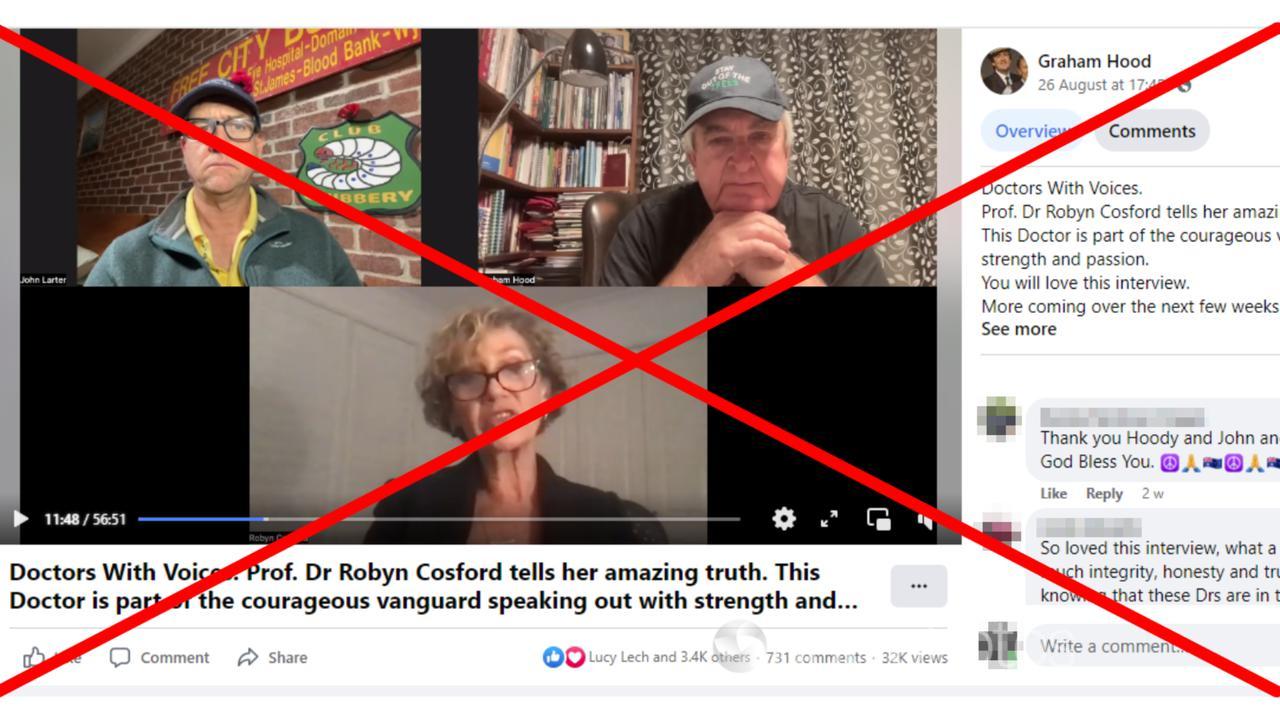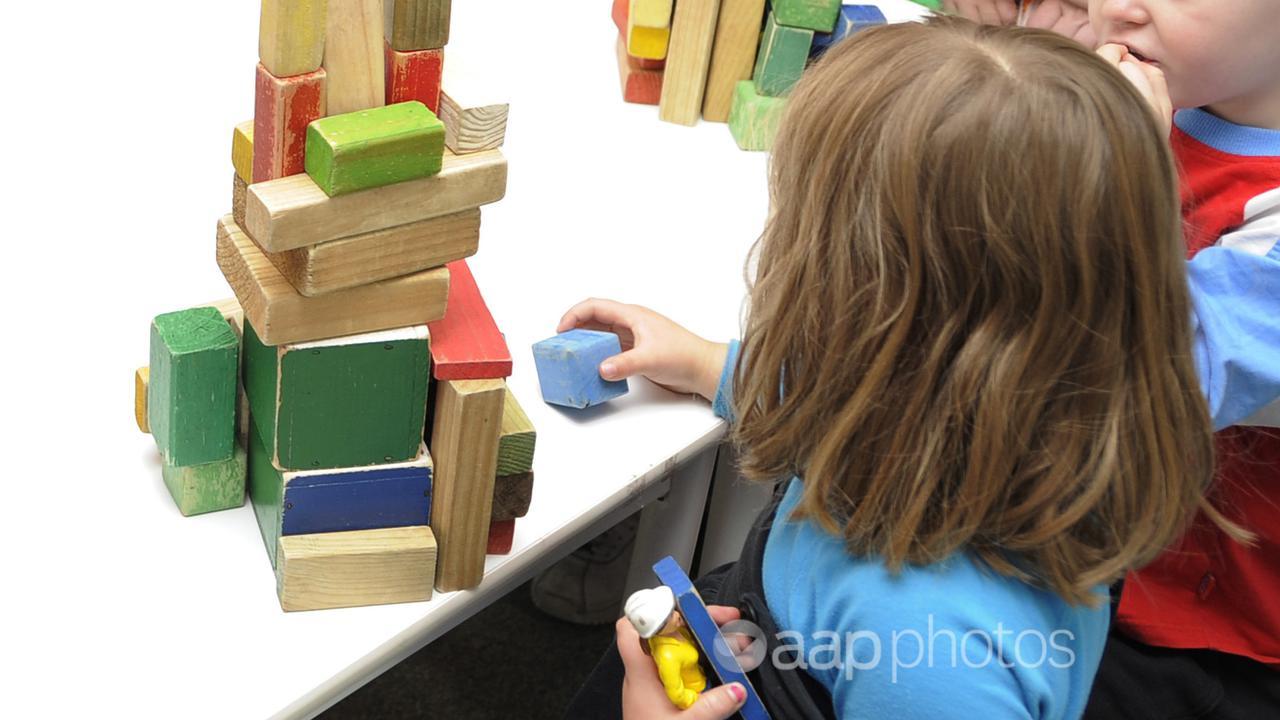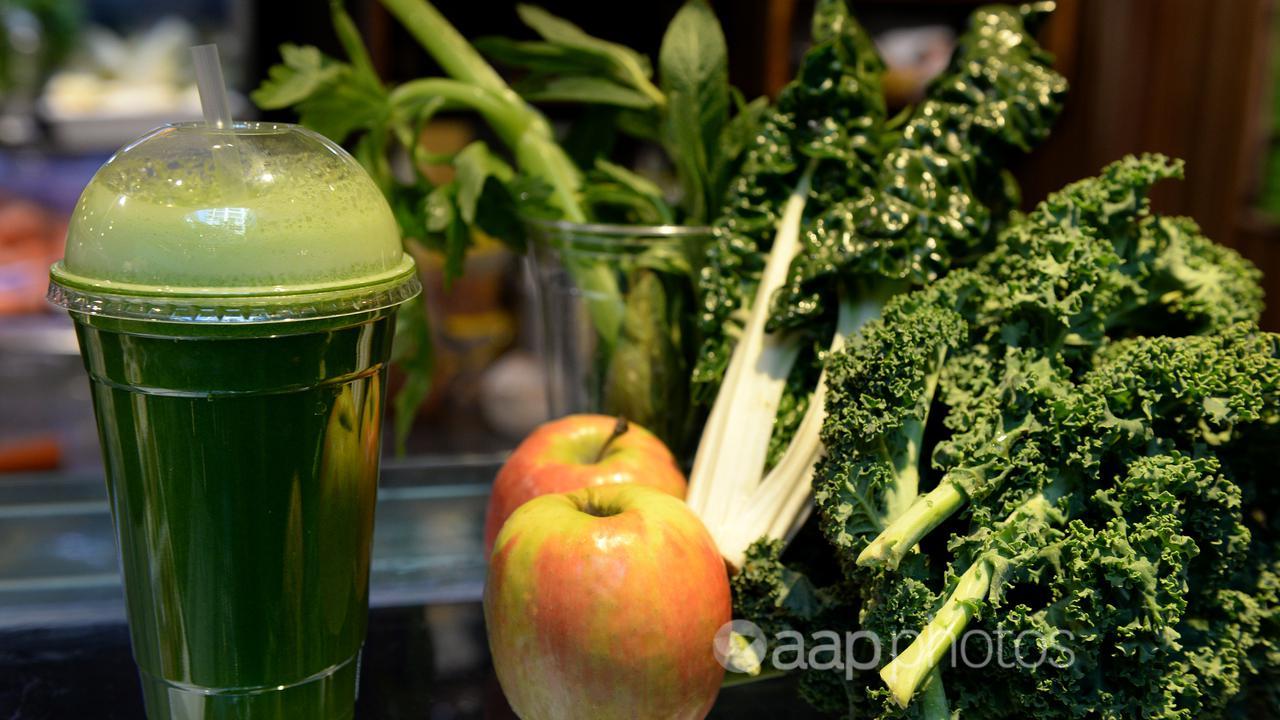An Australian naturopath claims in a Facebook video that autism in children can be cured with therapeutic healthcare including a change of diet.
The claim is false. Experts say there is no cure for autism. Research into a possible link between nutrition and autism symptoms is inconclusive.
The claim was made by Robyn Cosford, who describes herself as a former medical practitioner and now runs the School of Divine Health.
“A lot of people think, even now, that autism is irreversible. It’s a label, a diagnosis that’s given by the medical profession and people are stuck with it, but that’s not true,” Dr Cosford said in the video (screenshot here).
“In most cases with correct nutritional biochemistry and diet and other allied therapies, in most cases you can bring these children back. You can bring them back into normal behaviour and back into life and functioning” (video mark 11min 20sec).

The claim was made during an interview with Graham Hood and John Larter, who have been the subject of previous AAP FactCheck articles – see here, here and here.
Autism spectrum disorder (ASD) experts and advocacy groups told AAP FactCheck beliefs that the condition can be simply “fixed” are not true.
Andrew Whitehouse, a professor of autism research at the University of Western Australia and president of the Australasian Society for Autism Research, says the claim is a fallacy.
“While diet and therapies are important to support the development and wellbeing of autistic children, it is false to claim that autism is reversible,” said Professor Whitehouse, who is director of CliniKids at Telethon Kids Institute, which provides autism therapies for children.
“Autism is a genetic-based condition, which leads to differences in brain development. Not only is there no evidence that diet, nor any other factor, is able to ‘reverse’ autism, it is simply implausible,” he said in an email.
Robin Young, an autism expert at Flinders University, told AAP FactCheck that autism can be managed, but the claim it can be reversed is false.
“Autism is not reversible,” Professor Young said in an email.
“Certainly the impact autism has on a person, if it is a negative one, may be minimised with support.”
Autism Spectrum Australia, the nation’s largest autism-specific service provider, agreed with the experts and told AAP FactCheck in an email: “There are no proven biomedical or other treatments that can ‘bring back’ children from autism.”

Medical organisations including the US National Institute of Child Health and Human Development, Mayo Clinic, Johns Hopkins All Children’s Hospital and Harvard Medical School also note ASD has no cure.
A 2019 meta-analysis published by Pediatrics journal found diet could potentially play a role in managing some autism symptoms, but the effects were small and the study’s results did not support “nonspecific dietary interventions as treatment of ASD”.
A study published in the same journal in 2017 found there was “little evidence to support the use of nutritional supplements or dietary therapies for children with ASD”.
A 2022 review in Nutrients journal concluded the results of studies on the relation between nutrition and ASD were “sparse and inconclusive, and hence, no firm conclusions could be drawn”.
“There is currently insufficient evidence for a relation between nutrition and ASD symptoms in childhood, making it impossible to provide practical nutrition guidelines,” the 2022 study said.
Australia’s Autism CRC (Cooperative Research Centre) lists a range of interventions that may support children on the spectrum. These include behavioural interventions, sensory-based learning, technology-based support, human-animal interactions and cognitive behaviour therapy.
The Verdict
The claim autism is reversible through diet and nutritional therapy is false. While dietary health and proper nutrition may help children with autism, it is incorrect to claim the condition can be reversed through diet and other therapies. Autism experts confirmed to AAP FactCheck the condition is not reversible, while reputable medical organisations say there is no cure.
False – The claim is inaccurate.
* AAP FactCheck is an accredited member of the International Fact-Checking Network. To keep up with our latest fact checks, follow us on Facebook, Twitter and Instagram.
All information, text and images included on the AAP Websites is for personal use only and may not be re-written, copied, re-sold or re-distributed, framed, linked, shared onto social media or otherwise used whether for compensation of any kind or not, unless you have the prior written permission of AAP. For more information, please refer to our standard terms and conditions.


















